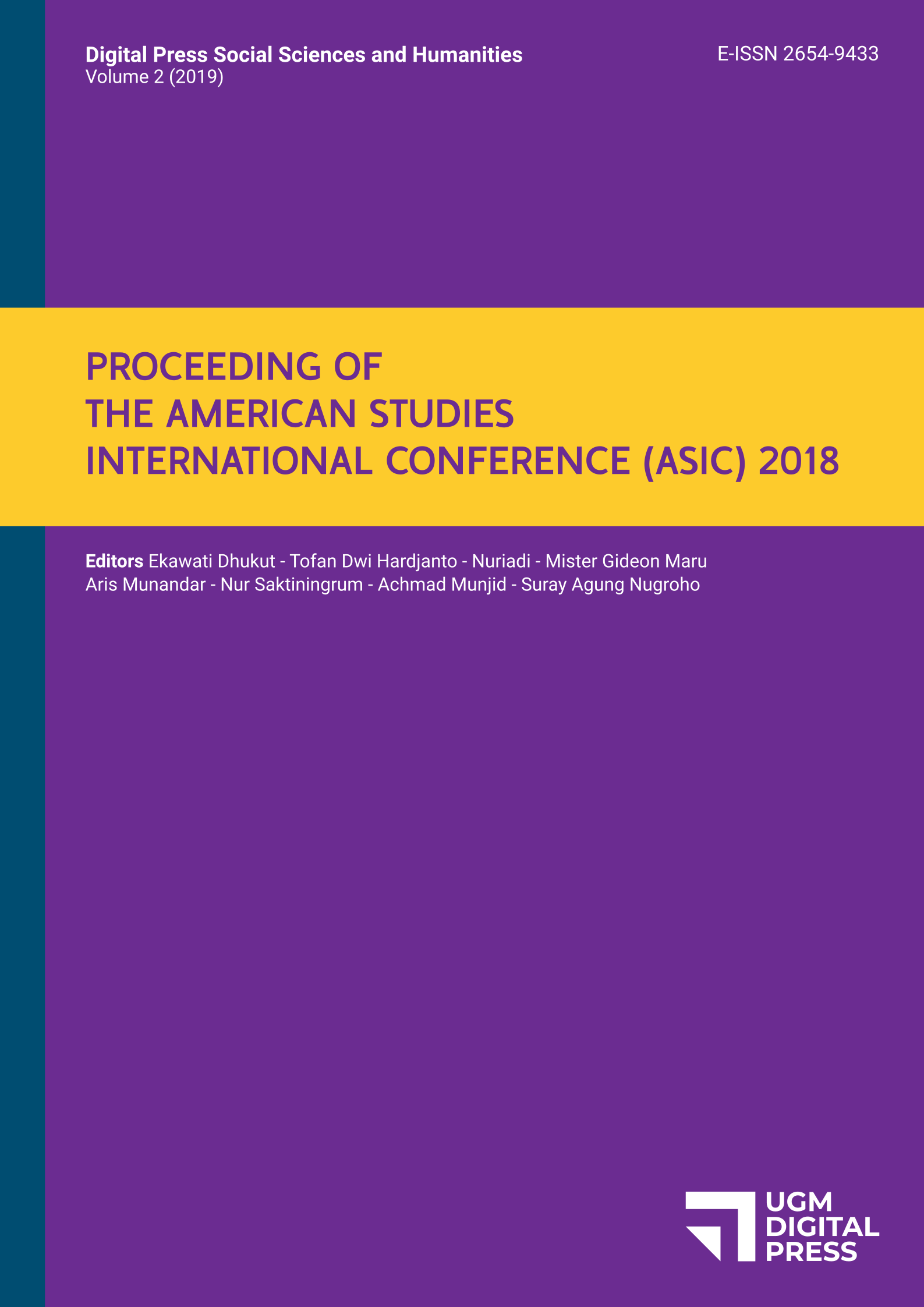Indonesian Literature and Its Identity in the Mood of the Age
Muhammad Hamdan Mukafi
Master of Literary Studies Program, Faculty of Cultural Sciences, Universitas Gadjah Mada. Indonesia
dorr.dreamers@gmail.com
Abstract
Globalization era is marked by information and technology advancement. It brings jungle of sign, obscuring definitive convention, or even creating a new definition, which is occurred in Indonesian literature. Colonialism history is a center convention which defines Indonesian literature, the literary genre is one of it. Reflecting a case of colonialism; England with its literary genre convention, that are a poem, fiction, and drama – are getting “resistance” from America, the continent that “occupied” by it, which had been opening free space to establish literary genres, such as sermon and speech are included. Therefore, in this case, innovation to Indonesian literary definition always a chance. Cross-media literature, in a blanket of information and technology advancement, had been born with hybridizing text, audio, and visual. Internet medium such as YouTube being its publication method. In 2011, Fahd Djibran and his colleagues gave birth to literary work named revolvere project – when the creation of audio-visual no longer arranged, but parting to literature. The born of revolvere project followed by many artists who answered to the mood of the age. Many new names come up like visual-poetry, visual-fiction, and more – putting them in one room known as Literary Reformer. It has its structure, interpreted in hybridative form, but opening to be studied in a different way when separated. This lead to a question of its legitimation in Indonesian literary world. So, Jane Stokes genre theory chose to examine its worthiness as Indonesian literature’s new creation room in genre classification. In this research, the theory of semiotics, the field of cultural production, and basic of taxonomy are implemented to observe its position to classify and struggle scheme in Indonesian literary world. Then, literary reformer denoted as Indonesian literature reflection, a success of mixing arts spices in one chalice, creating Indonesian literature new definitive identity.
Keywords
the mood of the age, hybridization, newborn, literature, identity
References
dorr.dreamers@gmail.com
Abstract
Globalization era is marked by information and technology advancement. It brings jungle of sign, obscuring definitive convention, or even creating a new definition, which is occurred in Indonesian literature. Colonialism history is a center convention which defines Indonesian literature, the literary genre is one of it. Reflecting a case of colonialism; England with its literary genre convention, that are a poem, fiction, and drama – are getting “resistance” from America, the continent that “occupied” by it, which had been opening free space to establish literary genres, such as sermon and speech are included. Therefore, in this case, innovation to Indonesian literary definition always a chance. Cross-media literature, in a blanket of information and technology advancement, had been born with hybridizing text, audio, and visual. Internet medium such as YouTube being its publication method. In 2011, Fahd Djibran and his colleagues gave birth to literary work named revolvere project – when the creation of audio-visual no longer arranged, but parting to literature. The born of revolvere project followed by many artists who answered to the mood of the age. Many new names come up like visual-poetry, visual-fiction, and more – putting them in one room known as Literary Reformer. It has its structure, interpreted in hybridative form, but opening to be studied in a different way when separated. This lead to a question of its legitimation in Indonesian literary world. So, Jane Stokes genre theory chose to examine its worthiness as Indonesian literature’s new creation room in genre classification. In this research, the theory of semiotics, the field of cultural production, and basic of taxonomy are implemented to observe its position to classify and struggle scheme in Indonesian literary world. Then, literary reformer denoted as Indonesian literature reflection, a success of mixing arts spices in one chalice, creating Indonesian literature new definitive identity.

